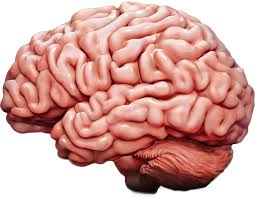In a fast-paced world filled with information and tasks, it’s common for people to struggle with forgetfulness.
Fortunately, there are several effective strategies and solutions that can help individuals enhance their memory and reduce forgetfulness.
Whether you’re a student, a professional, or simply looking to boost your cognitive abilities, implementing these techniques can lead to a sharper and more reliable memory.
Establish a Routine:
Creating a daily routine can provide structure and help organize your thoughts. Set aside specific times for important tasks, such as studying, exercising, and even relaxation. Consistency reinforces memory and reduces the chances of forgetting crucial details.
Stay Organized:
Use tools like planners, to-do lists, and digital apps to keep track of your tasks, appointments, and commitments. By recording your responsibilities, you’ll reduce the likelihood of forgetting important events or assignments.
Mindful Attention:
Practice mindfulness and actively engage with the present moment. When you’re fully present, your brain is more likely to absorb and retain information. Minimize distractions and focus on one task at a time.
Chunking Information:
Break down complex information into smaller, manageable chunks. This technique makes it easier for your brain to process and remember details. Whether you’re studying for an exam or learning a new skill, chunking can be incredibly effective.
Use Mnemonic Devices:
Mnemonics are memory aids that can help you remember information more easily. Acronyms, visual associations, and rhymes are examples of mnemonic devices that can enhance your recall of important facts.
Regular Exercise:
Physical activity has been linked to improved cognitive function and memory. Engage in regular exercise to increase blood flow to the brain, which can enhance your ability to remember and retain information.
Healthy Diet:
Proper nutrition plays a vital role in brain health. Include foods rich in antioxidants, omega-3 fatty acids, and vitamins in your diet. These nutrients support cognitive function and can contribute to better memory.
Adequate Sleep:
Quality sleep is essential for memory consolidation. Aim for 7-9 hours of sleep per night to allow your brain to process and store information effectively.
Brain-Boosting Activities:
Engage in activities that challenge your brain, such as puzzles, crosswords, and memory games. These activities stimulate neural connections and promote better memory retention.
Stay Socially Active:
Interacting with others and participating in social activities can help keep your brain engaged and active. Meaningful social connections contribute to cognitive vitality.
However, forgetfulness is a common challenge, but with the right strategies and lifestyle adjustments, it’s possible to overcome and even prevent memory lapses.
By incorporating these practical solutions into your daily routine, you’ll be well on your way to enjoying a sharper and more reliable memory.



